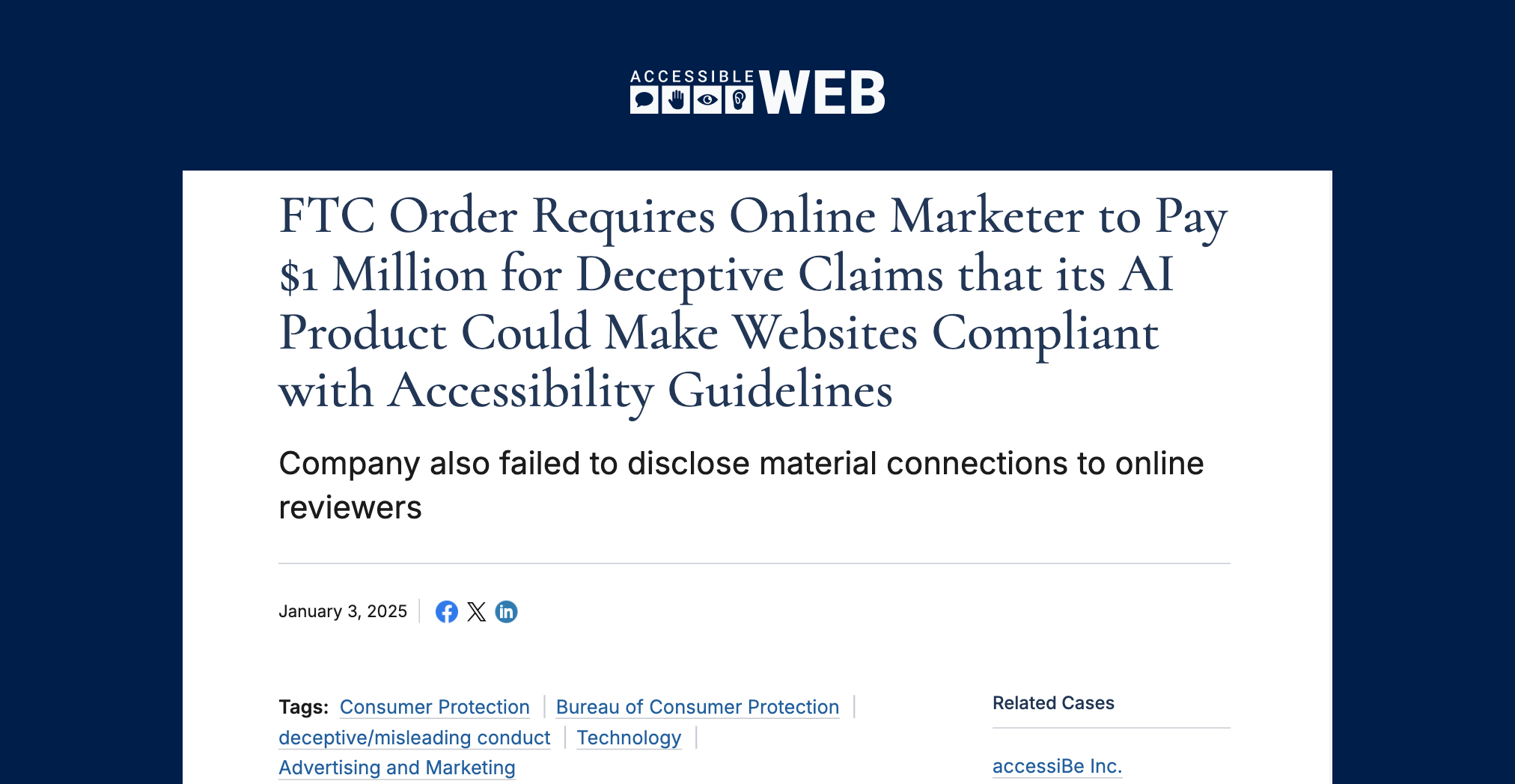
Public Comment to the FTC in Support of Action Against AccessiBe
The following is our public comment – accessiBe; File No. 222 3156
Submit your public comment on the Federal Register – Deadline February 5, 2025
At Accessible Web, we fully support the Federal Trade Commission’s decision to penalize accessiBe for misleading practices. This is a crucial and long-overdue step toward providing clarity around the requirements of web accessibility compliance and helping our industry create a more accessible web.
AccessiBe has misled countless organizations by claiming to offer a “one-click fix” for web accessibility. This isn’t just false advertising. It’s harmful to their customers and to society. These promises don’t align with accessibility laws like the ADA or the web’s primary accessibility standard, WCAG, and they often make websites harder for people with disabilities.
While the penalty is a start, it’s small compared to the money accessiBe likely makes. On their website’s homepage, accessiBe advertises that their software is used on over 100,000 websites. In the language of the settlement, the FTC notes that the $1M penalty proceeds will go towards compensating the customers accessiBe has misled. That works out to $10 of compensation per customer for a product that costs upwards of $490/year. Is this really a penalty or just a cost of doing business?
Beyond misled website owners, what about the societal cost? Overlay technologies have become pervasive, dramatically muddying the waters in the web accessibility space, delaying real accessibility improvements on the web, and denying millions of Americans with disabilities their right to equal access.
Overlays like accessiBe’s ignore the real experiences of individuals with disabilities. Instead of improving access, these tools often create more barriers. What’s worse is that well-meaning organizations are being misled into thinking they’re helping when they’re making their websites less inclusive. This isn’t just frustrating; it’s wrong.
Real accessibility aims to improve a website or app’s compatibility with the familiar assistive technologies that users already have installed on their devices and have it work properly. The idea that people with disabilities want to click on an overlay and enable accessibility tools is disingenuous and harkens to a “separate but equal” mindset that has no place in modern accessibility practices (or society).
At Accessible Web, we know there’s no quick fix for accessibility. That’s why we focus on education, tools, and ongoing support. We also include people with disabilities on our team and listen to their feedback. They’ve told us loud and clear: overlays don’t work. They make the web harder to navigate, not easier.
We encourage others to join us in supporting the FTC’s action and urging the Department of Justice and other federal agencies to provide clear guidance against using overlays as an accessibility solution. This is about more than one company’s false advertising. It’s about setting a standard for accessibility that respects and includes everyone.
Peter Jewett
Burlington, VT
Founder, CEO – Accessible Web